Part II: CEO/Founders confront recession’s impact, social media role, and a purpose-driven mindset on brand awareness

CDU: Financial stressors following the COVID-19 pandemic are still a major issue for Gen Z consumers. How does your brand remain cost-effective and affordable to appeal to this consumer population?
Olamide Olowe, Topicals (OO): Topicals creates targeted solutions that combine many of the most effective ingredients into one product to recuse the steps in a person's routine making it more affordable and more efficient to get results.
Fiona Chan, Youthforia (FC): I think what's truly unique about our products is that our formulas are actually really expensive—this is because I like to use the most high-quality, efficacious ingredients to level up the texture and feel of the finished product. But because I'm so involved in the product development, I'm able to work it out and still make them much more affordable than products from most luxury brands.
Stephanie Lee, selfmade (SL): We know that economic recessions, a growth slow down, can feel scary when things that were once abundant are now feeling more limited. While recessions naturally occur in our economy, but it doesn’t stop it from feeling stressful, uncertain and anxiety inducing for us. And its long-term impact can feel more difficult over time.
First, we had a conversation with a financial expert and advisor to understand implications of a slowdown and financial stressors. Next, we know that with recession-like conditions the consumer wants to go back to basics: consumer essentials like lotion and body wash are always needed, luxury goods typically remain resilient, despite costing more than other goods in their general category, and people would rather invest their money into quality goods, rather than spend less money on a product that isn’t very effective.
Finally, we ensure our products have high value and worth, and are multifunctional and multipurpose. We have built in cost mechanisms for value size and unit price efficiencies, a bundling strategy to provide discounting to consumer without sacrificing brand equity, and development cost and margins built to pass on savings to the consumer. Four percent of our product cost goes to developing the emotional wellbeing research, development and programming our community benefits from, and we haven’t raised our prices.
CDU: Many Gen Z consumers consider themselves to be content creators. How does your brand cultivate a presence on social media, and how does your brand’s focus appeal to content creators in this demographic?
OO: Topicals cultivates a strong presence on social media by creating visually appealing content that resonates with its target audience. The brand focuses on creating relatable, educational, and entertaining content that engages its followers and encourages them to share their experiences with Topicals products.
The brand often features real people with real skin concerns in its marketing materials, which helps to create a sense of community and encourages customers to share their own experiences with the brand. Topicals' content is also educational and informative, which appeals to Gen Z consumers who are interested in learning more about skincare and self-care.
The brand provides tips and advice on topics such as acne, hyperpigmentation, and mental health, which helps to establish Topicals as a trusted resource for skincare knowledge. Topicals has also collaborated with content creators on social media to create branded content that showcases its products in a fun and creative way. These collaborations help to expand the brand's reach and appeal to a wider audience of content creators who may be interested in working with Topicals.
FC: I still run our TikTok and handle a lot of the content creation we put out—I think it ultimately has to do with the age and stage that we're at. In this day where everyone's so TikTok-focused, anyone can become a content creator; like even my mom kind of did by accident.
I think it's a platform that really embraces this authenticity and that's something that's great because you don't have to show up and be perfect and it'll still resonate with people. I think that's something that's really cool and unique for this generation.
SL: Firstly, by employing those who are in our direct target audience because they know what Gen Z want to create in the world more than I do. Vanessa Rossel and Cindy Wu lead our social media presence under the oversight of Michaela Biasucci our Creative Director.
All artists themselves, they personally understand the nature of being a creator and the vulnerability it takes to put oneself out there. By creating relationships with creators (rather than influencers) they prioritize what it takes to translate emotional wellbeing into a lifestyle and hand over the mic to feature live experiences of our community.
We’ve also created a Junior Advisory Editorial board where our Board members can contribute to guiding the strategy of our social outlets in an authentic manner. This is going to be led by Julianna Marie, who is a writer focused on mental health, beauty and wellbeing at HerCampus.
CDU: How does your brand cultivate a purpose-driven mindset within its brand awareness initiatives?
OO: Topicals cultivates a purpose-driven mindset within its brand awareness initiatives by focusing on the brand's core values and mission. Topicals has partnered with non-profits such as the Loveland Foundation and Therapy for Black Girls to support mental health awareness and provide resources for those in need.
These partnerships help to reinforce Topicals' commitment to social responsibility and purpose-driven initiatives. Topicals has also implemented sustainability initiatives, such as using recyclable packaging and reducing waste in its supply chain.
These initiatives help to reinforce the brand's commitment to environmental responsibility and purpose-driven initiatives. Topicals engages with its community through social media and events, such as mental health discussions and skincare workshops. These initiatives help to establish Topicals as a brand that cares about its customers and is committed to promoting self-care and mental health awareness.
FC: I would say that every time we do something on the brand side of things, we just try to be very intentional—and that comes down to the ingredients we select, and how we kind of work through everything that goes from conceiving an idea to launching the actual product. A really important thing for me is being able to formulate in a bio-based way, which means we do our best to not use fossil fuel-based ingredients wherever we can, and we follow Green Chemistry principles.
The nuance to this is that we do use synthetic ingredients, but I will go out of my way to find it coming from a plant instead of an animal or a fossil fuel source. This is important to me because I used to work in a ton of really polluted cities and if given the choice, I would obviously want to choose something that's renewable.
SL: Because beauty and self-worth have been hand in hand for so long, how we feel and see ourselves have a powerful relationship that is conscious and subconscious. Beauty is an incredibly personal way to spend time with ourselves to self-reflect for awareness, care through self-touch, and explore our relationship with our self-worth -- which ultimately is a microcosm of what whole human health and care can look like if we apply it to other areas of our lives.
That means we develop our products as tools that spark curiosity in the pursuit of emotional intelligence and self-worth where we already are at our vanity, shower, or nightstand. One of the first steps to self-awareness is expanding our emotional vocabulary which is why each product embodies a tried-and-true human psychological concept: attachment, resilience, corrective experience, and intimacy.
Our product philosophy revolves around psycho-dermatology with the goal of bringing awareness to the exact point where our emotional and mental wellbeing affects our skin and body function. That body and mind axis is critical to understanding the internal and external stressors that bring us out of a healthy homeostasis, triggering stress, which in turn shows up in our skin (acne, dryness, inflammation, sensitivity).
Lastly, we practice skin neutrality. It is neither good nor bad. Rather acknowledging it is our largest organ and we want to keep it healthy and happy so it can protect us from bacteria, external stressors, etc.
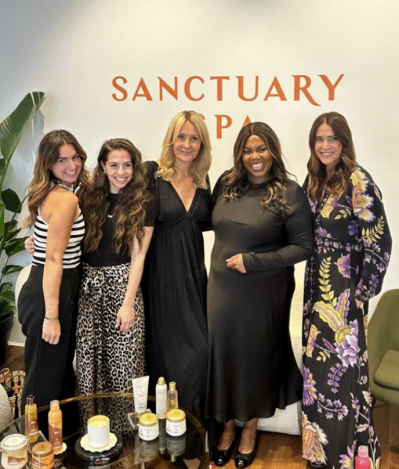

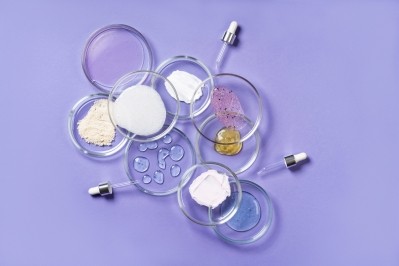
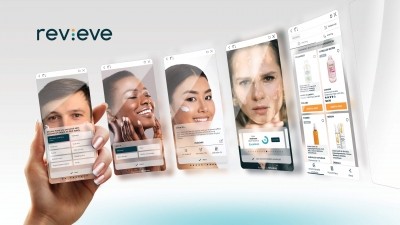

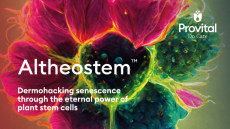

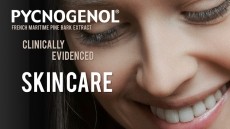


![Chinese study highlights mental health challenges in atopic dermatitis, emphasising holistic patient care. [Getty Images]](https://www.cosmeticsdesign-europe.com/var/wrbm_gb_food_pharma/storage/images/_aliases/wrbm_tiny/publications/cosmetics/cosmeticsdesign-asia.com/headlines/formulation-science/chinese-research-linking-atopic-dermatitis-to-mental-health-underscores-need-for-holistic-care/17040623-1-eng-GB/Chinese-research-linking-atopic-dermatitis-to-mental-health-underscores-need-for-holistic-care.jpg)








